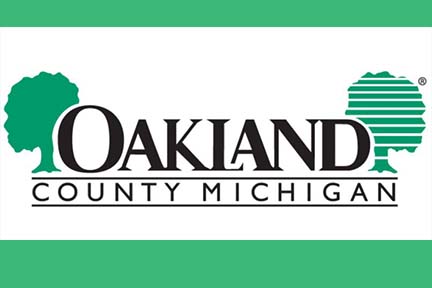
AG Nessel Wraps Up Holiday Scam Campaign
|
|
|

|
|
|

|
|
|


FOR IMMEDIATE RELEASE December 29, 2024 Contact: [email protected] Governor Whitmer, Lt. Governor Gilchrist Statements on Passing of President Carter LANSING, Mich. – Governor Gretchen Whitmer and Lt. Governor Garlin Gilchrist II issued the following statements on the passing of former U.S. President Jimmy Carter. “President Carter was a good man and exemplary American who set a powerful example for all of us over the course of his long life. “He rose from peanut farmer to president, serving in the U.S. Navy, the state legislature, and as Governor of Georgia along the way. In the White House, President Carter brokered peace, established the Departments of Energy and Education, advocated for solar energy, and doubled the amount of land for national parks and wildlife refuges. “After serving as the most powerful person on the planet, he dedicated decades of his life to helping those around the world who had the least. He helped build thousands of homes with Habitat for Humanity, and established the Carter Center, focused on health and human rights. And he made time to preach from his community pulpit on Sundays. “President Carter lived an impressive life, driven by fundamental core values that so many of us share: faith, patriotism, and love. My thoughts are with his family.” Lt. Governor Garlin Gilchrist “Jimmy Carter was an incredible leader who worked every day of his life before, during, and after his presidency to make a difference for his fellow Americans and create a more prosperous and peaceful world. He extended a helping hand toward those in need and fought tirelessly for human rights, global development, and peace. “As a state legislator, governor, president, statesman, and Nobel Peace Prize winner, he understood the unique mission and meaning of public service: helping his fellow citizens live their best lives and reach their full potential. As the nation grieves his passing, let us reflect on the lessons of his life and recommit to following in his footsteps, creating a more connected and conscientious world for all of us.”
|

|
|


FOR IMMEDIATE RELEASE December 30, 2024 Contact: [email protected]
Governor Whitmer Signs Bills Expanding Affordable Housing Options Across the State, Lowering Costs and Putting Money Back in Michiganders’ Pockets Additional legislation helps create jobs and grow the economy, makes changes to the courts
LANSING, Mich. – Today, Governor Gretchen Whitmer signed eight commonsense bills that will expand affordable housing options for Michiganders by reducing the barriers renters must overcome while looking for a roof over their heads. Additional legislation signed protects Michiganders testifying in the courtroom, combats human trafficking, and supports economic development in our state. Including today’s legislation, Governor Whitmer has signed a record 1,431 bipartisan bills into law since taking office.
“I am committed to growing access to affordable housing so every Michigander can raise their family in a vibrant community,” said Governor Whitmer. “That’s why I am proud to sign these commonsense bills that expand affordable housing options and protect Michiganders from housing discrimination. I’m also proud to sign additional bipartisan legislation that will protect survivors in the courtroom and help grow Michigan’s data processing industry. I’ll work with anyone to make sure Michigan is the first place folks think of to live, work, and raise their families.”
Senate Bills 205, 206, and 207, sponsored by state Senators Mary Cavanagh (D-Redford Township), Rosemary Bayer (D-West Bloomfield), and Jeff Irwin (D-Ann Arbor), expand affordable housing options in Michigan by preventing qualifying landlords from denying a tenant housing based on their source of income. The bills also combat homelessness in Michigan by reducing the barriers folks have to overcome when finding housing in our state. These changes will help potentially 34,290 families afford a roof over their heads and will create more affordable housing options for Michiganders across the state, building on the Whitmer-Gilchrist administration’s commitment to ensuring anyone can “make it in Michigan.”
Senate Bills 515, 516, and 517, sponsored by state Senators Rosemary Bayer (D-West Bloomfield), Sue Shink (D-Northfield Township), and Stepanie Chang (D-Detroit), will combat human trafficking in Michigan and help bring justice for survivors of sexual assault by updating the process to gather and use evidence in prosecuting perpetrators of these crimes. Specifically, the bills ease the rules for a victim’s testimony and allow a perpetrator’s prior criminal activities as pieces of evidence. Not only will these bills protect survivors of these horrific crimes, but they will also address human trafficking in our state, building a more secure Michigan where everyone can feel safe from sexual violence.
Senate Bill 248, sponsored by state Senator Dan Lauwers (R-Brockway), supports a wider range of individuals when testifying in the courtroom by expanding the age limit to have a courtroom support dog from 16 years old to 18 years old. This bill joins Michigan with 20 other states that already have similar policy in effect, supporting young individuals in their pursuit of justice.
Senate Bill 237, sponsored by state Senator Kevin Hertel (D-St. Clair Shores), supports Michigan business owners and helps to expand data center production in Michigan by extending a tax exemption for individuals and companies investing in data center equipment. This bill provides incentives for data centers to locate in Michigan, creating jobs and supporting local economies, bolstering the Whitmer-Gilchrist administration’s commitment to making sure anyone can “make it in Michigan.”
|

Pontiac, Mich. – Oakland County has been recognized for its commitment to sustainability, earning two distinguished honors: the 2024 Local Market Leadership Award from the U.S. Green Building Council (USGBC) Detroit Region and the Certified Green Community Award from the U.S. Green Building Council of West Michigan (USGBC-WM). Both awards celebrate Oakland County’s LEED for Cities Gold certification, highlighting its innovative approach to fostering healthier, more resilient communities through sustainable practices.
“Our commitment to sustainability in Oakland County is about creating a healthier, more vibrant future for everyone,” County Executive Dave Coulter said. “These awards reflect the hard work of our staff, communities and partners, showing that together we can lead the way in building more resilient, healthy and environmentally friendly communities.”
The USGBC Detroit Region presented Oakland County with the Local Market Leadership Award during the Building Transformation Forum on Dec. 4 in Detroit. The award recognizes exemplary use of green building and sustainability practices that improve quality of life in the Metro Detroit area.
“USGBC’s Local Market Leadership Awards spotlight commitment and innovation in green building,” said Lana Crouse, director of the USGBC Detroit Region. “Oakland County’s achievement of the 2024 LEED for Cities Gold certification demonstrates how sustainable practices directly enhance quality of life for residents, visitors and businesses.”
Oakland County was further honored for their LEED for Cities certification by the USGBC-WM at the 2024 Annual Party & Leadership Awards Ceremony on Dec. 5 in Grand Rapids. The Certified Green Community Award acknowledges projects that make extraordinary contributions to creating energy-efficient, environmentally conscious communities that drive local development.
“These recognitions underscore Oakland County’s efforts to achieve measurable environmental progress and reflect County Executive Dave Coulter’s vision of fostering sustainable, thriving communities,” said Julie Lyons Bricker, Oakland County’s sustainability project manager.
The county’s LEED for Cities Gold certification exemplifies its commitment to adopting environmentally sound practices that prioritize energy efficiency, water conservation and reduced carbon emissions.
The county scored particularly well in the topics of abundant green space, natural resource conservation and restoration, stormwater management, smart water systems and several quality-of-life performance measures. LEED stands for Leadership in Energy and Environmental Design and has recently been expanded to include certifying cities and communities for their sustainability efforts.
Both awards reinforce Oakland County’s leadership role in advancing sustainability statewide. As part of its vision, the county aims to inspire other municipalities to adopt innovative strategies that address climate change and support long-term environmental stewardship.